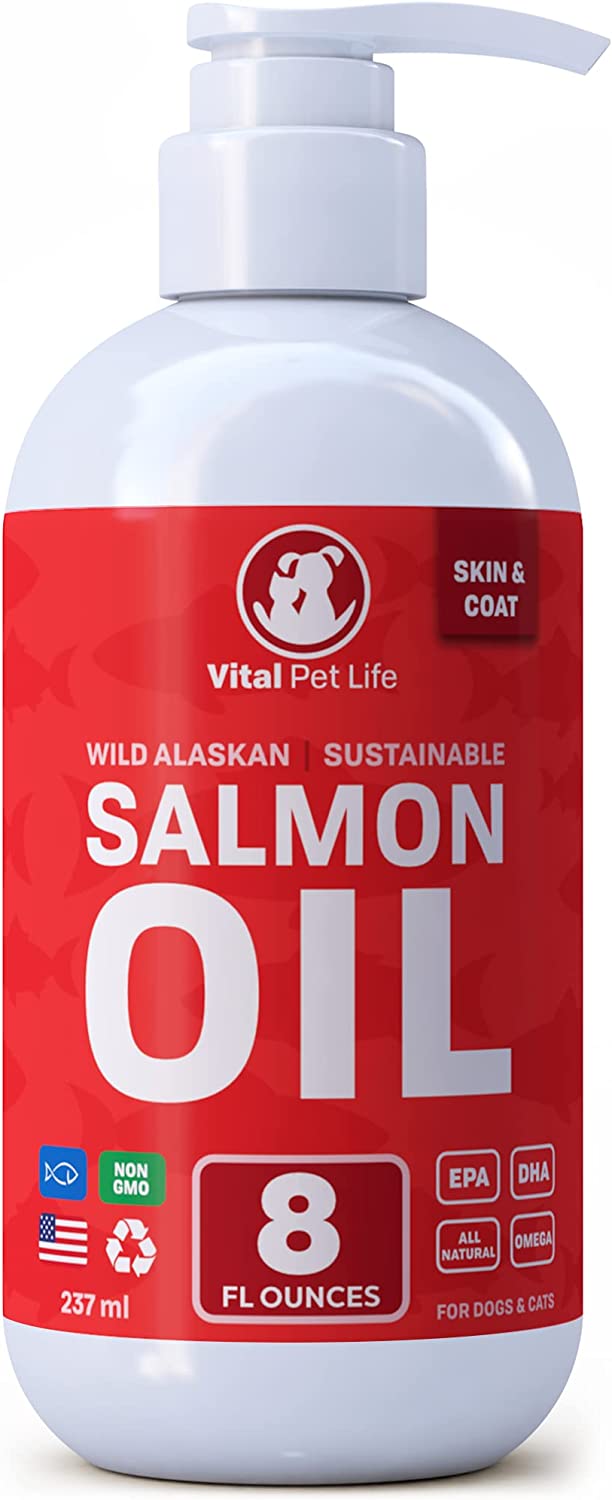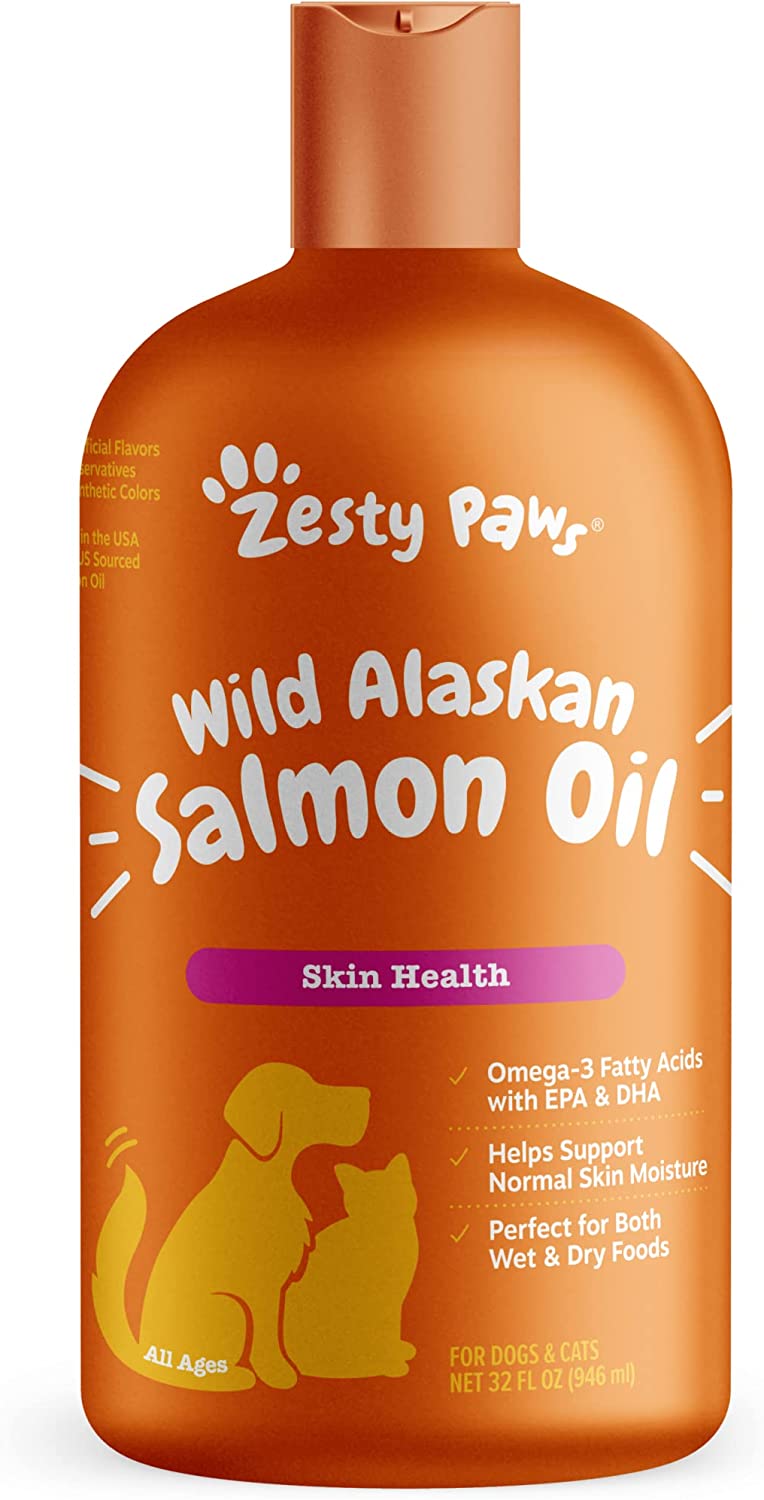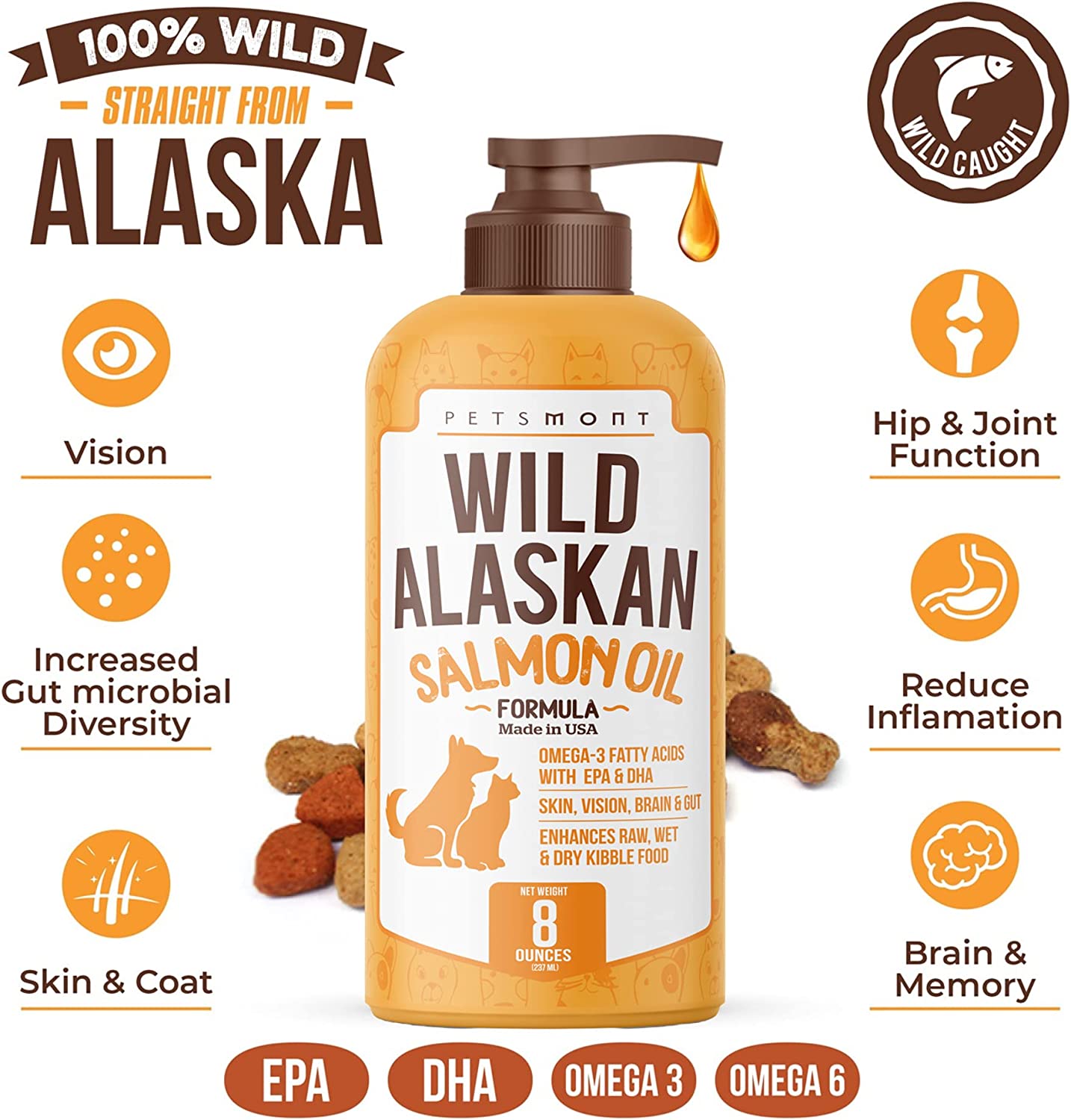Arthritis, digestive issues, and skin problems are just a few of the common health concerns that pet owners may notice in their aging cat. Fortunately, there is a simple solution to help ease your cat's pain and discomfort — fish oil supplements!
Fish oil can be added to your cat's diet in various ways: some types of fish are edible while others are made into pills or liquid supplements. The type you choose depends on what your cat prefers as well as any dietary restrictions. Each form has its own pros and cons; for example, cats love the taste of raw fish but this can be messy compared to pill alternatives.
Before purchasing fish oil products for your kitty, we recommend reading through our buying guide below so you know exactly what to look for when shopping around.
How We Choose
We've reviewed the best salmon oil supplements for cats to help you find the right choice for your pet. Salmon oil contains high levels of omega-3 fatty acids, which are an essential part of your cat's diet. They can also be used as a joint supplement to help keep your kitty comfortable. Look below for our top picks and find out more about each product before making your decision.
Salmon Oil for Dogs & Cats

The product that we are reviewing today is Salmon Oil. This is a fantastic product that contains all of the essential fatty acids, including omega-3 and omega-6, which are important for maintaining a healthy skin and coat.
It also has astaxanthin, which helps to keep your pet's skin looking its best. It can be added to your dog's food or used as an alternative supplement when feeding raw diets. We recommend starting with 1/8 teaspoon per pound of food each day and gradually increasing it until you find the right level for your pet.
This fish oil supplement is sourced sustainably and has no additives or preservatives so it's safe for both humans and animals to use. The price may seem high at first glance but considering how beneficial it is – especially if you have a cat with allergies – it's well worth the cost.
Pure Wild Alaskan Salmon Oil for Dogs & Cats

The Zenwise N5-IJD1-IG9G Salmon Oil is a great option for any pet owner looking to add some extra benefits to their pet's diet. This fish oil supplement is perfect for dogs and cats alike, as it can be added to food or used as a treat.
The fish oil in this formula contains high concentrations of EPA and DHA, which have been shown to support immune health, skin and coat conditions, and joint function. It also has antioxidants that help protect against free radical damage, making this a great choice for overall health. The taste is pleasant enough that you won't even notice the fishy aftertaste some other brands have; however if your cat does not like the flavor they may spit it out instead of eating it.
This product comes in several flavors including chicken, sweet potato and salmon so you can easily find one your cat will enjoy eating. Additionally, the bottle design makes it easy to dispense just the right amount needed for feeding or topping off their water bowl with water with added Omega 3s.
Petsmont Wild Alaskan Salmon Oil for Cats

Our pick for the best fish oil supplement is Petsmont's Wild Alaskan Salmon Oil. This product has been carefully sourced from Alaska, where the salmon are fed only on algae and plankton to ensure a high concentration of omega-3 fatty acids.
The result is an incredibly high-quality fish oil supplement that provides your cat with essential nutrients without any unpleasant aftertastes or stinky burps. It's also easy to digest and won't cause any digestive issues in your cat, so you can rest assured knowing that it will be safe for him to consume.
Our favorite thing about this fish oil supplement is its convenient bottle design - it comes in a leak-proof pump bottle that makes dispensing the right amount of fish oil simple and easy every time.
Salmon Oil For Cats FAQs
Cats are curious creatures, and they love to stick their noses where it's not welcome.
This can be dangerous, especially if they're sniffing at a chemical or oil that could harm them. You want the best possible care for your cat, but with all of the products on the market it can be tough to know which ones are safe!
Not only do you want to make sure that your kitty is getting enough omega-3s in their diet but you also don't want them ingesting harmful chemicals from fake oils or supplements. With so many questions you probably have about fish oils for cats, we've created this list of Frequently Asked Questions so that you can feel more confident about making an informed decision when choosing a product for your feline friend!
Can I Give Salmon Oil To My Cat Everyday?
While salmon oil is generally safe for cats, it's important to note that they can't metabolize fish oil as well as humans. This means you shouldn't overdo it and give too much every day.
If your cat has a compromised immune system or another health condition, it's best to check with your veterinarian before supplementing with salmon oil. They may recommend doing so just once a week at most in small doses.
It's also worth noting that some cats are allergic to fish, so if yours starts scratching excessively after eating salmon oil or any other kind of fish product, stop giving them the supplement immediately and consult your vet about an alternative source of omega-3 fatty acids.
What Are The Side Effects Of Salmon Oil For Cats?
As with any supplement, it's important to remember that too much of a good thing can cause problems. That being said, the side effects of salmon oil for cats are generally mild and may include:
Diarrhea
Excessive thirst
Increased urination Some pet owners have also reported an increase in their cat's shedding but note that it is usually quite minimal. If you notice this side effect or any other that seems excessive, contact your veterinarian right away.
Is Salmon Oil Or Fish Oil Better For Cats?
Salmon oil and fish oil are essentially the same thing, with the only difference being their flavor. Salmon oil tends to have a stronger taste, which some cats may find unpleasant, while fish oil has a milder flavor that's less likely to upset sensitive stomachs.
Both salmon oil and fish oil contain essential fatty acids like Omega 3 and 6 as well as other nutrients like Vitamin E. However, salmon oils tend to contain slightly higher levels of Omega 3 compared to Omega 6 compared to regular fish oils. This is important because many experts believe cats require more Omega 3 than Omega 6 in their diet compared with dogs.
Another benefit of salmon oil is it also contains astaxanthin, an antioxidant that protects against sun damage in cats.
Can I Put Salmon Oil On Dry Cat Food?
It's not ideal, but it is possible to put salmon oil on dry cat food. You can either mix a small amount of the oil in with their regular food or put a large spoonful directly onto their dry food as an extra treat. If you're worried about your cat not getting enough water when consuming oils, mix some low-sodium chicken broth into the cat bowl along with the salmon oil and dry kibble.
You'll want to be careful how much you give your pet though because too much fat in a cat's diet can cause diarrhea and other intestinal issues. We recommend sticking to no more than two tablespoons per day if you choose to treat your pet with salmon oil on top of their regular meal.
Can Cats Overdose On Salmon Oil?
The short answer is no. In fact, if you've been wondering which of your other cat's medications can be safely given with fatty acids, the answer is none. That's because salmon oil does not impact cats' blood thinners or any other medication they may be taking.
While there have been a few reports of cats experiencing diarrhea while taking salmon oil (which is something to watch out for with all types of fish), there haven't been any reports of cats overdosing on it and having negative effects as a result. So, if you're concerned about your pet pooping too much, adding some salmon oil to their diet might actually help solve that problem!
Can Salmon Oil Cause Pancreatitis In Cats?
While it's true that salmon oil contains omega-3 fatty acids, which are associated with pancreatitis in humans, there is no evidence that cats who consume salmon oil suffer from pancreatic inflammation. Cats rarely develop the symptoms of pancreatitis and those who do often have diabetes. It's not clear if salmon oil has any effect on blood sugar levels in cats, but some pet owners have reported a decrease in their cat's appetite after giving it salmon oil for several weeks. If your cat does seem to show signs of pain or distress after consuming salmon oil, talk to your veterinarian about ways to help manage his condition.
Does Salmon Oil Help With Hairballs In Cats?
Since salmon oil is high in Omega 3 fatty acids, it can help to keep your cat's coat and skin healthy. This can help to ward off hairballs, which are caused by cats chewing on their fur (which some cats do as a form of stress relief). Some pet owners have reported that giving their cat salmon oil has helped them to reduce the number of hairballs.
In addition to helping your cat maintain a healthy coat, salmon oil could also improve your cat's joint health. Omega 3 fatty acids play an important role in keeping joint tissues well lubricated, which may help to prevent arthritis and other painful conditions.
Does Salmon Oil Help Cats With Itchy Skin?
While it's not specifically designed for cats, salmon oil is rich in omega 3 fatty acids which are thought to help with a number of different health conditions in pets including allergies, obesity and joint pain. Its anti-inflammatory properties may also be beneficial for cats suffering from skin conditions like dryness and eczema.
While there is some evidence that omega 3s can benefit cats with these types of conditions, we don't have any studies specifically looking at salmon oil as a treatment option. It's worth noting that your cat must be healthy enough to take fish oil supplements or eat foods containing salmon oil otherwise they could actually make their condition worse. We'd recommend consulting your veterinarian before giving salmon oil to your cat as part of a treatment plan.
Conclusion
In conclusion, the best salmon oil for cats is one that meets your pet's dietary needs and lifestyle while also providing them with beneficial nutrients. Make sure to choose a reputable brand that is free from contaminants and offers a quality product at an affordable price. With all these factors considered, you can rest assured that your furry friend will be grateful for the healthy treat!









